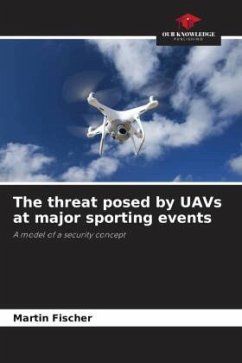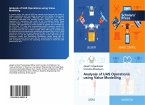Unmanned Aerial Vehicles (UAVs), also known as drones, are becoming smaller and more powerful every year. The possibilities for sabotage, terrorist acts or even illegal information gathering using UAVs are constantly increasing. Past incidents have shown that drones can be used in many different ways, including, unfortunately, for malicious purposes. These include drug smuggling into prisons, photographing people without their knowledge and spying on electronic data. Rapid technological advances give cause to consider security concepts that take this threat into account. This is where this scientific work comes in: by creating a user-friendly catalogue of measures against threats posed by UAVs, major sporting events can be made even safer.
Bitte wählen Sie Ihr Anliegen aus.
Rechnungen
Retourenschein anfordern
Bestellstatus
Storno








